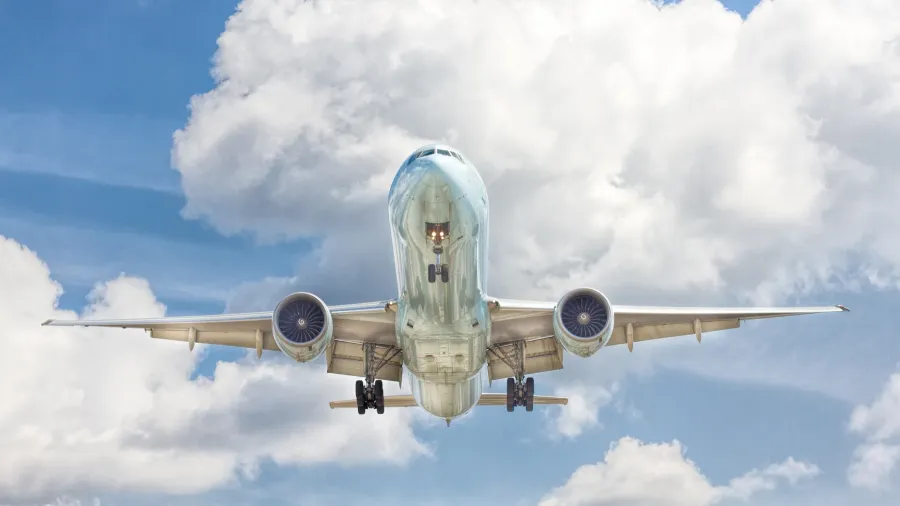
Aviation industry could reduce 80% carbon emissions if supply met demand
Boeing SE Asia president’s green projection is coupled with hopes to expand its sustainability R&D in Singapore.
The regional boss of airline giant Boeing said that the aviation industry could slash its carbon emissions by 80% if it can meet the soaring demand for 100% sustainable aviation fuel.
Addressing the Industrial Transformation Asia-Pacific (ITAP) 2023, Alexander Feldman, president of Boeing in Southeast Asia, said that innovation and sustainability are intertwined, and addressing environmental concerns is now a core component of Boeing’s vision.
The company has pledged to achieve net-zero carbon emissions in the aerospace industry by 2050.
Four key areas define Boeing’s approach to sustainability: fleet renewal, operational efficiency, renewable energy, and advanced technology.
Each of these areas plays a crucial role in achieving their sustainability goals. For instance, fleet renewal results in significant efficiency improvements and a reduction in carbon emissions, whilst operational efficiency ensures more efficient routes, reducing fuel consumption.
The environmental benefits of these sustainability initiatives are immense. Reducing carbon emissions and transitioning to sustainable aviation fuel are vital steps in addressing the environmental impact of aviation.
The industry’s commitment to sustainability will not only reduce its carbon footprint, but also pave the way for innovative solutions that enhance efficiency, drive growth, and tackle disruptions, like those experienced during the pandemic.
Innovation and supply chain
With a global network of engineering centres and a strong focus on research and development (R&D), the company aims to pioneer new solutions and technologies.
Notable innovations include the introduction of battery-operated electric autonomous air taxis that will revolutionise transportation and reduce environmental impact.
Supply chain resilience is another vital aspect of Boeing’s strategy. With millions of parts required to build a Boeing aircraft, ensuring a resilient supply chain is critical.
Diversifying sources and partnerships with suppliers in Southeast Asia, like Malaysia and Singapore, are part of Boeing’s plan to safeguard its supply chain against disruptions.
“As any of you follow, the news supply chain has been both an opportunity and a challenge for Boeing. To give you an idea, it takes about 2.3 million parts to make a Boeing 787 Dreamliner. So that’s a lot of parts. We sourced them from all around the world,” said Feldman.
“We have the largest concentration of our suppliers in Southeast Asia located in Malaysia, but we want more resiliency. One of the things we want to make sure of is that going forward, Boeing is not relying on any single source for our supply chain,” he added.
Team collaboration and partnerships
Feldman pinned teamwork as a vital business aspect, highlighting that facing the pandemic required a collective effort.
“Last year we hired 23,000 people, mostly engineers. This year, we’re looking to hire 10,000 more. We just opened an engineering centre in Brazil. We’ve got an incredible plan around the world,” he said.
Singapore, with its productivity and commitment to quality, has the potential to be a significant contributor to Boeing’s aerospace innovation efforts.
“Our CEO, Dave Calhoun was just in Singapore. And we talked about what we’re doing in terms of innovating and using the research and development centres that we’ve got throughout Asia. So we’ve got centres in Japan, Korea, China, India, and Australia, and I hope someday we’ll have one here [in Singapore] too,” Feldman confirmed.
Boeing’s workforce of over 150,000 strong had to come together, working with various stakeholders, governments, and airline customers to navigate the challenges and ensure safe travel for all.
It places significant importance on partnerships and collaborations and these extend beyond customers and suppliers and include working with regulators and governments.
In conclusion, Feldman said: “ASEAN matters.” This is a strong affirmation the thriving innovation ecosystem and the presence of strong R&D centres throughout the Southeast Asian region.
Collectively, the countries in the region offer a diverse pool of talent and expertise, which Boeing can tap, enabling it to stay at the forefront of aerospace innovation in this rapidly evolving industry.
It was clear that Boeing’s Feldman encourages businesses to explore the opportunities that the region offers, emphasising its significance in the global context.









![Cross Domain [Manu + SBR + ABF + ABR + FMCG + HBR + ]](https://cmg-qa.s3.ap-southeast-1.amazonaws.com/s3fs-public/styles/exclusive_featured_article/public/2025-01/earth-3537401_1920_4.jpg.webp?itok=WaRpTJwE)









 Advertise
Advertise


